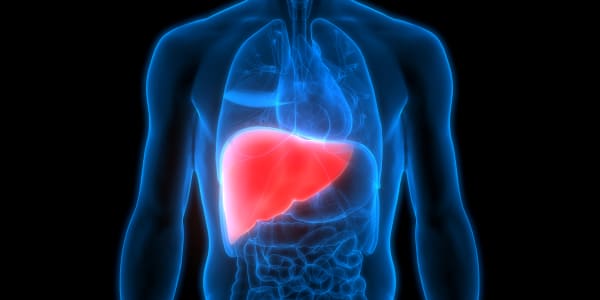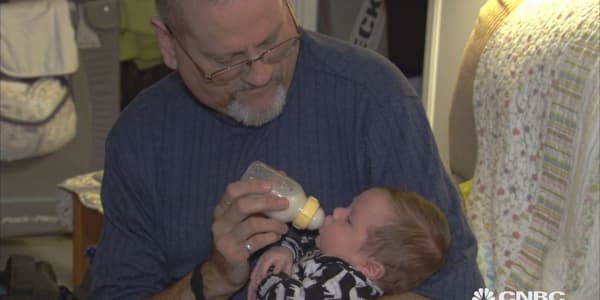Car manufacturers constantly upgrade safety technology. In 1958, Saab was the first to make seat belts standard. In the early 1970s the Oldsmobile Toronado could be purchased with high-mounted brake lights and airbags. Now with rapid advances in wearables and autonomous driving systems, a new wave of safety technology is on the way — allowing cars to react to medical emergencies.
Toyota and Ford are each independently researching how to pair health sensors with autonomous driving technology so that vehicles will be able to pull off the road and call for help if they determine a passenger is having either cardiac trouble or a diabetic event.
Chuck Gulash, a senior executive engineer at Toyota and director of its Collaborative Safety Research Center in Ann Arbor, Michigan, said heart rate and blood glucose levels can be effectively monitored, as they are associated with a relatively high number of vehicle crashes.
He referenced a 2009 National Highway Traffic Safety Administration study, which found that diabetic events were behind 20 percent of crashes precipitated by driver-reported medical emergencies, and heart attacks accounted for an additional 11 percent. As people are not always aware they're having medical trouble, the actual figure could be higher.
"We've spent 30 years scientifically measuring crash criteria, but there wasn't a lot of research into physiological metrics," Gulash said.
Heart-related medical issues behind the wheel are extremely dangerous because the sufferer can lose consciousness, said Dr. Nitish Badhwar, professor of clinical medicine and director of the Cardiac Electrophysiology Training Program at the University of California, San Francisco. People having heart attacks are not always aware of it, Badhwar said. A system that can detect dangerous heart rates, pull off the road and call for assistance would help.
We've spent 30 years scientifically measuring crash criteria, but there wasn't a lot of research into physiological metrics.Chuck Gulashsenior executive engineer at Toyota and director of its Collaborative Safety Research Center
Within Silicon Valley, companies like Apple and Google are pushing into core health-care services, looking at methods to monitor blood sugar and prevent heart disease. Apple also has been testing a way to use its Apple Watch to monitor the heart.
The American Diabetes Association estimates that more than 30 million adults in America have the condition. While most can safely operate motor vehicles, diabetics are 12 percent to 19 percent more likely to have an accident, according to a meta-analysis cited in an ADA study.
Medical monitoring systems are likely to make driving safer for diabetics and those who share the road with them, says Dr. Dan Lorber, chair of the American Diabetes Association's National Advocacy Committee. "If blood sugar drops low enough, cognitive function can decrease," he said, adding, "These systems would help with that, as the big risk is that patients don't always recognize when it's happening."
But the increased risk needs to be placed in the proper context: Crash statistics show there are far greater dangers on the roads. "Sixteen-year-old males have 42 times more collisions than 35- to 45-year-old women," according to the ADA. "Driving at 1:00 a.m. on Sunday is 142 times more dangerous than driving at 11:00 a.m."
The 2009 NHTSA study found 1.3 percent of all crashes were precipitated by driver-reported medical emergencies.
Ford thinks the technology is still five to 10 years away
Ford is working on linking wearable and in-car sensors to monitor heart and respiration rates, blood glucose levels and skin temperature. Ford is also developing a nonintrusive method of measuring brain waves to determine driver alertness.
"The technology to measure brain waves exists today if you're willing to strap a tethered helmet filled with sensors to your head," said Gary Strumolo, manager of the automaker's vehicle design and infotronics research analysis. "But for technology to work in the marketplace, it has to be reliable and relatively invisible to the consumer."
Unobtrusive, reliable sensors linked to self-driving technology could come to market in the next five to 10 years, Strumolo said.
More from Modern Medicine:
One-third of Americans are on way to diabetes, and most have no idea
Nobel-winning medical research includes warning about using phone in bed
Tech addiction is finally being taken seriously by health experts
Car makers have already built some features that point to broader medical goals.
At GM the Cadillac Super Cruise, available on the CT6 large sedan, can monitor a driver's awareness. The system uses a camera and infrared lights to track the positioning of the driver's head to determine where he or she is looking. Super Cruise can slow the car to a stop, engage hazard lights and call for help if it determines a driver isn't paying attention.
That is one of several "drowsy driver" systems now offered across multiple automakers. Some Daimler-made Mercedes models have a brake system that can bring a vehicle to a standstill and place an emergency call, when the car's Active Steering Assist program detects that a driver is no longer actively driving the vehicle. Mercedes is also working on a system for professional truck and bus drivers that includes a sensor vest with electrocardiography sensors.
Honda envisions when the car's A.I. will ask, 'Are you okay?'
A Honda partnership with Japanese giant SoftBank is developing artificial intelligence that will serve both mind and body — an "emotion engine" to determine drivers' emotional state. The Honda Automated Network Assistant would make recommendations based on its interpretation of your mood. HANA could recommend soothing music for drivers with elevated heart rates, or ice cream for those with high body temperature, a concept that comedian and car geek Jay Leno described on CNBC as "driving your therapist."
The Honda system has more serious aims as well. HANA, currently being tested in a concept car called the NeuV, would use biometrics and facial-recognition sensors to determine the driver's state of well-being.
Biometric sensors would feed data to the A.I., which could compare the driver's current heart rate and breathing to a historical baseline of data gathered from months or years of daily driving and determine if the current biometric data is outside the normal range, said Honda spokesman Marcos Frommer. The facial recognition sensor and A.I. could recognize if the driver's face is showing signs of distress. The A.I. then might ask, "Hey, Nick, are you okay? Your heart rate and breathing are unusual."
"Let's say Nick doesn't respond to multiple inquiries. The A.I., which also manages the autonomous driving, could then make a decision to call 911 and simultaneously safely maneuver the vehicle to the side of the road to await emergency response," Frommer said. He added that there is no current roll-out date. "This is in the future, but it's something we're pursuing today," he said.
Mercedes is working on a similar system, designed around the basic idea that "a person who feels well drives more safely," said spokesman Bernhard Weidemann. Sensors, either built into a vehicle or wearable, would measure a driver's vital parameters along with collecting data on his or her surroundings.
Of course, any system that monitors an individual's health will raise privacy concerns. Gulash said discussions about privacy are ongoing at Toyota, and throughout the auto industry. One approach under consideration is to require people to "opt in" to using the technology.
"We're not turning vehicles into medical devices," Ford's Strumolo said. "Crossing that line would require cars to be regulated by the Food and Drug Administration. We're trying to help people take charge of their own health and wellness, not replace medical experts."
The integration of health sensors seems likely to save lives, but potential benefits go beyond that. "They could lower auto insurance rates, and even health insurance rates through healthy living programs," Strumolo said. And these technologies may be life-changing for those "who currently limit or forgo driving due to medical conditions," he said.
— By Joe D'Allegro, special to CNBC.com




